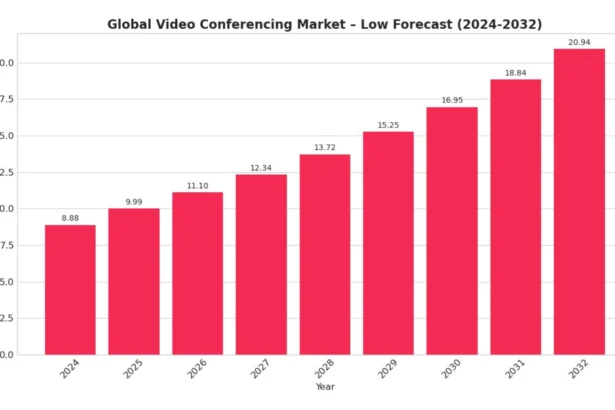According to the Global Tech Trends Survey from July this year, more than half (57%) of Polish IT leaders see potential for further growth of their companies: 35% indicated plans to expand internationally. Growth will be driven by investments in digital technologies. The Polish IT sector offers foreign customers increasingly complex solutions, including finished products and unique competences. This makes it a strong brand on the international stage. On the expansion of Polish companies, barriers, challenges, opportunities and successes in an interview with Artur Wiza, Vice President of the Management Board of Asseco Poland S.A., Chairman of the Board at the Polish Chamber of Information Technology and Telecommunications.
What are the opportunities, benefits, barriers and threats in the foreign expansion of Polish companies?
Poland is quite a large market, almost 40 million strong, sufficient for smaller and medium-sized companies. Such companies can adopt the strategy that they will simply operate only in the country. However, if one has ambitions for greater growth, it is important to remember that Poland is only half a percent of the global market.
New technologies, such as the cloud, make it possible to completely change the approach to IT business, and national borders are no barrier to them. It is possible to launch a new idea or product not necessarily where the customers are. In our country, many companies are being set up right away with a view to operating and growing in the global market. Technology makes it possible to create products immediately intended for specific foreign markets. In the Asseco Group, for example, we have a Polish company, Nextbank, which develops banking in the Philippines and deals exclusively with that country.
“(…) if one has ambitions for greater growth, it is important to remember that Poland is only half a percent of the global market. ”
When it comes to barriers to expansion, cost is, as usual, the most significant. You need people who are prepared to operate in a particular market, you need to establish yourself in that market, research it and so on. All this costs money. The second barrier is risk, and you have to be ready to bear it, i.e. find human capital to take the risk and financial capital to finance the project. We have companies on the market in which the funds have invested a lot of capital, but there are no profits yet. Such capital is taking risks while waiting for future profits.
How to help Polish companies expand?
For Asseco, foreign expansion was the best thing that could have happened at the beginning of the company’s development. We were completely dependent on servicing the Polish banking sector until we finally came across a large foreign bank taking over another bank in Poland that was operating on our system. And it turned out that although we were quite a large company, we were too small for this foreign bank. It was then that Adam Góral decided to look for a way to grow abroad. He found a company called Asset Soft in Slovakia, with which we merged. This was the first of around 120 transactions. Since 2004 we have grown 140 times, and today we have 90% of our revenues from foreign markets and, what’s more, from different sectors. So we are strongly diversified and that means less vulnerability to risk. Even if there is a downturn in one country or sector, business may be better in another. So the risks are spread out. This would not have happened without international expansion.
We have also found our model to compete with the biggest players. Although we are a global company, we try to act locally, tailoring products to customers in individual markets, taking into account their specific characteristics and requirements. This is a very different approach from global corporations, which mostly offer the same product and it is the customer who has to adapt to it.
What role should economic self-administration play in this context?
The role of industry organisations such as PIIT, the Lewiatan Confederation or the Digital Poland Association is to work for the development of the entire sector. In Asseco, we operate on a large scale, but we do not have employees who would deal, for example, only with regulations or contacts with the legislator. Meanwhile, economic self-governments have the right specialists, and they should be in dialogue with the government, with the European Commission, both on the issue of regulation and the search for new areas of the market. It is always a good idea to get involved in such organisations and jointly look for development opportunities for the whole industry.
In September, a conference was held at the National Stadium which focused on rebuilding Ukraine. One of the topics was ICT and support for our sector in building a reconstruction strategy. What should Polish companies pay attention to and how should they prepare to support Ukraine in terms of the current war and its digital reconstruction?
Ukraine has always been an interesting market for us. It is close, also culturally. And we Poles can be a good intermediary, connecting the Western and Eastern worlds, because we understand both. After the war, this country will be completely rebuildable.
“(…) Ukraine, when rebuilding, will be able to reach for newer technologies and make some leaps forward.”
It seems that support in the form of ready-made products or solutions that have already been implemented elsewhere will be most welcome. This will be an opportunity for Ukraine, because by reaching for such solutions it will be possible to save time, avoid mistakes already made elsewhere, or skip entire stages in development by going straight to the cutting edge. This is exactly what happened in the Polish banking system. Polish banks introduced their systems much later than, for example, Western European ones, and as a result, much more modern solutions were implemented, while some older ones turned out to be completely unnecessary. In Poland, for example, we missed the cheque stage; they never found use on a larger scale. And yet they are still common in the USA. In Africa, on the other hand, online banking was skipped altogether, going straight to mobile banking. In the same way, Ukraine, in rebuilding, will be able to tap into newer technologies and make some leaps forward. It is also important to remember that the Ukrainians have done quite well in IT, with their own solutions and capable IT people. So it seems that the best way to do business there will be to find the right partners, transfer experience and work closely with local companies.










